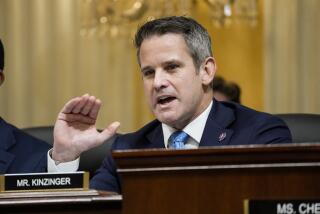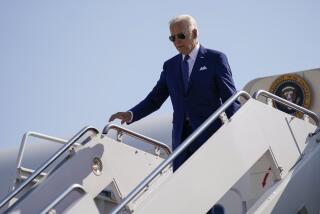Afghan Pact Not a Present to Reagan, Gorbachev Says
- Share via
MOSCOW — Mikhail S. Gorbachev confirmed today that Soviet troops will begin coming home from Afghanistan on May 15, but he added that the move shouldn’t be seen as “a present to President Reagan” for their coming summit meeting.
Soviets interviewed on the streets of Moscow welcomed the news, saying, “Many people have suffered.”
Radio Moscow carried a brief report on Gorbachev’s speech to party activists in Tashkent following the announcement in Geneva that U.N. negotiators had agreed on a plan for settling the 10-year-old war in Afghanistan that was ready to be signed by next week.
Obstacles Removed
Gorbachev and Afghan leader Najibullah met in Tashkent, in Central Asia, on Thursday and declared in a joint communique that all obstacles to a war settlement and withdrawal of the Soviet forces had been removed. (Story on Page 15.)
Radio Moscow led its evening newscasts with a few details of Gorbachev’s Tashkent address.
It said the Soviet leader confirmed that Soviet soldiers would begin pulling out of the conflict they entered more than eight years ago, and that documents outlining terms of the peace accord were ready for signing next Thursday.
Not a Present
“At the same time, the Soviet leader said the withdrawal of the troops should not be regarded as a sort of present to President Reagan on the eve of his visit to the U.S.S.R.,” the official broadcast said. “We, he said, are carrying out the plans outlined in our statement in February.”
It was in a Feb. 8 speech by Gorbachev that the May 15 date was first proposed, but at the time it was made contingent on a Geneva agreement being signed by March 15. That speech also offered to “front-load” the withdrawal, or have at least half of the estimated 115,000 Soviet soldiers leave within the first three months, and to complete the withdrawal within 10 months.
Early Return Hoped
Soviet officials have observed privately, however, that they would like to have all of their troops home by the end of the year. Soviet troops intervened in Afghanistan on Dec. 27, 1979.
A senior U.S. diplomat said today that back-channel U.S.-Soviet diplomacy was involved in clearing the final obstacle to a Geneva agreement: the question of continued aid to the warring sides.
U.S. observers at the Geneva talks had been pressing for “symmetry” in foreign aid to the combatants, arguing that if U.S. assistance to the rebels was prohibited, the Kremlin should likewise cut off military aid to Najibullah’s government.
More to Read
Sign up for Essential California
The most important California stories and recommendations in your inbox every morning.
You may occasionally receive promotional content from the Los Angeles Times.













